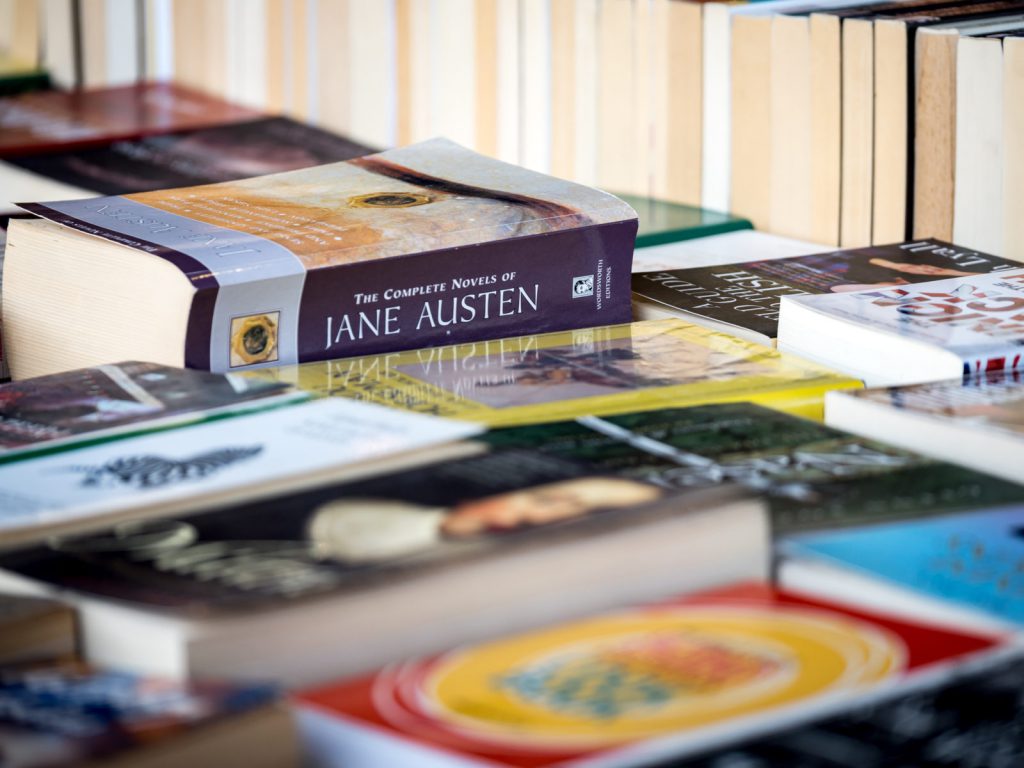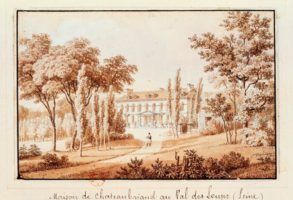
Published July 14, 2017
The Weekly Standard - July 17, 2017 issue
I decided against Jane Austen, without having read her, at 21. I had gone up to Trinity College, Cambridge, to read English, and the first don I met was my tutor (tutors oversaw one’s moral hygiene and general deportment, while supervisors handled the academic end). He was a voluble little dumpling of a man, a formidable legal scholar said to be panoptically cultivated, and he quickly set about probing my intellectual weaknesses with surgical precision. That I knew almost nothing of opera and had not read Goethe or Proust marked me a typical American dullard, though one perhaps with possibilities; but that I had never heard the name Emma Woodhouse got me unforgiving torrential scorn. Had I really gone to an Ivy League college? If so, what did that say about American education, and about me? How could I presume to keep company with the brilliant native students who had read everything and knew Jane Austen as they did Shakespeare? When our interview was over, I thanked my tutor for his counsel and vowed silently that I would do my best to avoid him in the future and that I would never have anything to do with Jane Austen. Cambridge English at the time was cosmopolitan and serious; I spent my first term reading Dostoyevsky and Tolstoy, ecstatically. Jane Austen I did not touch for 40 years. A matter of pride and prejudice.
One can cite authority from several directions on aversion to Austen. Madame de Staël pronounced her work “vulgaire,” presumably because Austen failed to appreciate the charms of adultery for persons of refinement. Charlotte Brontë dismissed her as bloodless: “she ruffles her reader by nothing vehement, disturbs him by nothing profound: the Passions are perfectly unknown to her.” Mark Twain said reading her distressed him as though he were “a barkeeper entering the Kingdom of Heaven.”
This month marks the two hundredth anniversary of Austen’s death, she has never been more popular than now, and the evidence of her triumph is largely appalling—as witness the members of the Jane Austen Society of North America playing dress-up in egg-cozy Regency gowns at the ball that ends their annual meeting. Clearly, Austen ninnies have a lot to answer for.
In Among the Janeites: A Journey Through the World of Jane Austen Fandom (2013), Deborah Yaffe pinpoints the event that ignited the Austen explosion: a scene in the 1995 BBC adaptation of Pride and Prejudice, in which the excessively handsome actor Colin Firth, playing the overheated Mr. Darcy, dives into a pond fully clothed to cool off and emerges with his wet white shirt clinging to his torso. Such an unseemly soaking never took place in the novel, but the filmmakers clearly knew what they were about: the year after the miniseries appeared, attendance at the Austen home and museum in Chawton doubled, to 57,000 visitors.
Popular movie and TV versions of all the other novels appeared at the same time or followed in rapid succession. A particular hit was Clueless (1995), which recast Emma among a Beverly Hills high school crowd. Distortions on the way to the screen were inevitable. In Austen’s version of Mansfield Park, Sir Thomas Bertram and his eldest son are absent from the scene for quite a long time, having gone to Antigua to look after the family plantation there. The Empire as mainstay of commercial aristocracy remains an offstage presence. But in Patricia Rozema’s 1995 film of the novel, as the son lies near death, the innocent heroine, Fanny Price, finds drawings that he made, clearly from life, of white masters raping their black slaves, including one of Sir Thomas, played here by Sir Harold Pinter, being fellated. This invention of Rozema’s is as grotesque as it is heavy-handed.
The Austen boom set off by the movies has seen an abundance of semi-literary sequels and knockoffs, some getting down and dirty, others adding zombies to the dramatis personae. And as Yaffe writes, fans can now “buy Jane Austen tote bags, mugs, board games, T-shirts, or bumper stickers,” as well as a “Jane Austen Action Figure (five inches of molded plastic, complete with quill pen).”
So Jane Austen came to represent the worst of both pseudo-aristocratic fastidiousness and hyper-democratic inanity: a particularly British (and anti-American) intellectual and social snobbery; a (frequently American) wistfulness for archaic proprieties, manor houses of mellow golden stone, and romance elegantly choreographed for legless angels of both sexes; and the inescapable crassness of the merchants and moviemakers and those who love them.
In spite of all that, mindful of an impermissible deficiency in my literary upbringing, I recently broke down and read Austen’s six novels. Their intelligence, wit, emotional discernment, and perfect prose proved entirely winning. Austen is master of the plain style, exceptional by being unexceptionable. The unrelentingly correct prose bespeaks a corresponding moral probity, for clarity of understanding is the sine qua non of virtuous behavior, and thereby of happiness. The occasional flourish of quietly devastating wit enlivens the day, but Austen never falls into self-display, advancing her stories at a steady clip, steadiness being a prime quality of hers. It is no wonder Charlotte Brontë belittled her; the Brontës in their unpruned witchy extravagance seem like the Weird Sisters by comparison.
In Sense and Sensibility (1811), Elinor Dashwood’s summary case against the villainous Willoughby, who really loved her sister Marianne but jilted her for a bride worth 20,000 pounds, recognizes that the crime against his own best feeling will bring him long-lasting suffering: “The world had made him extravagant and vain—Extravagance and vanity had made him cold-hearted and selfish. . . . Each faulty propensity in leading him to evil, had led him likewise to punishment.” Sins against love can be both unforgivable and unforgiving, and love of money or of rank is the besetting cause of such sin.
Scoundrels are thick on the ground, not hiding under rocks but abroad in full daylight, posing as heroes so that true heroes may disclose themselves: John Thorpe in Northanger Abbey (1817), whose self-aggrandizing fabrication about the supposed fortune possessed by the heroine, Catherine Morland, leads to her temporary disgrace and nearly foils her chance at true love with the Reverend Henry Tinsley; Wickham in Pride and Prejudice (1813), whose seduction of the 15-year-old numbskull Lydia Bennet and extortion of a handsome marriage settlement provide the occasion for an unexpected display of magnanimity on the part of Mr. Darcy, who thus proves himself worthy of Elizabeth Bennet, the most desirable Austen heroine; Henry Crawford in Mansfield Park (1814), whose considerable but ambiguous charms fail to win the hand of the prized ingénue Fanny Price, and who proves himself unworthy of love and friendship by running off with her corrupt married cousin, while Fanny settles down with the clergyman Edmund Bertram, whom she has loved all along.
Austen deals hard blows to snobbery, and self-love fatally abetted by want of self-knowledge is the snob’s downfall, or at least comeuppance. Emma Woodhouse, the willful and emotionally purblind heroine of Emma (1815), is rich, beautiful, clever, intellectually lazy, and convinced at 20 that she will never want to marry, for she has all she could ever need as virtual mistress of her widowed father’s grand house and no prospective husband could be good enough. Emma diverts herself by dissuading a silly and pliable young friend, Harriet Smith, from marrying a good-hearted farmer who loves her and by encouraging her to fall in love with a vain minister who falls in love with the unwitting and outraged Emma instead. Emma also tries out the idea of being in love herself with a newcomer to their little town, Frank Churchill, with the eventual intention of turning him down when he asks to marry her, as she is confident he will; but he is in fact secretly engaged to Jane Fairfax, whom Emma dislikes as her superior in beauty, education, and musical skill.
Though she gets everything hopelessly wrong, Emma is saved from herself by her closest friend, Mr. Knightley, an older man who angrily dresses her down when she wittily insults a poor, dim, and garrulous neighbor. Reduced to tears by his tirade, Emma finally wises up and flies right, realizes she must marry Mr. Knightley, preposterously fears he loves Harriet instead, but in the end gets her man. Perfectly plotted, psychologically acute, wonderfully funny, and offering regeneration even to a dubious heroine far-gone in vanity, Emma is Austen’s finest novel, and one of the best in the English language.
Jane Austen, who died a spinster at 41, was the patron saint of romantic second chances. Her heroes and heroines earn their eventual happiness, by overcoming seemingly insuperable impediments thrown up by fortune, society, and above all their own character. And happy is the reader who finds his or her way to Austen, whatever impediments might seem to block the path.
Algis Valiunas is a fellow at the Ethics and Public Policy Center.








